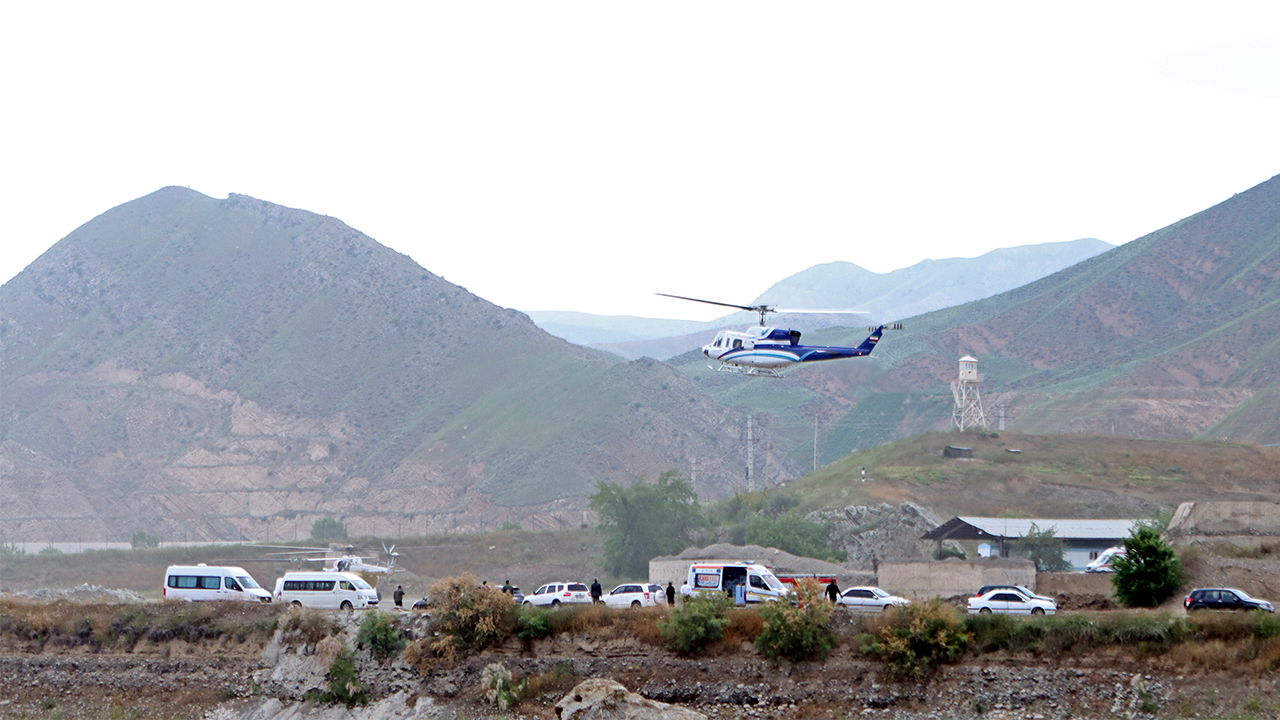SANTA FE, N.M. — Environmental officials in New Mexico took initial steps last week toward regulating the treatment and reuse of oil industry fracking water as the state grapples with scarce water supplies and fossil fuel producers confront shrinking opportunities for wastewater disposal.
A state water quality commission opened a weeklong series of hearings as the nation’s No. 2 state for petroleum production begins to build out a series of rules that initially prohibit the release after treatment of so-called produced water from oil and gas production while still opening the way for pilot projects.
“The rule is prohibitive when it comes to any type of release of any type of produced water, whether treated or untreated,” said Andrew Knight, assistant general counsel to the state Environment Department, in opening statements. “At this point, we couldn’t even tell you what testing would be needed to determine that a certain treatment technology or combination of technologies would be protective.”
He said the agency’s initial rule would be “as protective as possible while still allowing the science to advance through pilot and then demonstration projects.”
The proposal is generating public protests that give voice to fears of undisclosed contaminants used in the oil- and gas-drilling process. At the same time, oil producers and at least one water service provider say the regulations don’t provide specific water quality standards that might help effective treatment projects move forward.
The Environment Department “apparently wants a regulation to be able to deny a permit based on the source of the water, not its quality,” said Liz Newlin Taylor, an attorney for Select Water Solutions, a Houston-based water-management company for energy producers with operations in Carlsbad. “New Mexico certainly needs additional sources of water, and treated produced water could be part of this solution. These proposed regulations, however, failed.”
Several environmental groups are urging the Environment Department to strike definitions that refer to the reuse of treated water in agriculture, recreational fields, rangeland and potable water.
“The public, understandably, is concerned that the rule allows land application of produced water, and that produced water will infiltrate and pollute groundwater,” said Tannis Fox, an attorney representing environmental groups Amigos Bravos and The Sierra Club. “This is not what the rule says, but it is what members of the public are concerned about.”
New Mexico Gov. Michelle Lujan Grisham has pitched plans for the state to underwrite a strategic new source of water by buying and selling treated water that originates from the used, salty byproducts of oil and natural gas drilling. Related legislation stalled at the Legislature in February without a House or Senate floor vote, but the governor has said she’ll persist.
Several dozen protesters gathered recently outside the state Capitol to condemn the oil wastewater rule.
They included the lead plaintiff in a lawsuit alleging the state has failed to meet constitutional provisions for protecting against oil and gas pollution.
Another protester, Reyes DeVore, of Jemez Pueblo and the Native American environmental rights group Pueblo Action Alliance, said, “We collectively stand in opposition to the reuse of toxic oil and gas wastewater outside of the oil field.”
“The strategic water supply that Gov. Grisham announced, it’s not a real solution,” she said.
Expert testimony submitted by the New Mexico Oil and Gas Association paints a dire portrait of competition in New Mexico for water resources among cities, farms, industry and wildlife — even as oil-industry water demands grow for fracking.
“Over the next 50 years, New Mexico will have approximately 25% less water available in rivers and aquifers,” said John D’Antonio, who previously served as New Mexico’s top water regulator — the state engineer. “It impacts everything from municipal planning to population growth to economic activity.”
Other expert testimony from the association notes that oil companies have more and more produced water to dispose of as they increase drilling activity — with decreasing capacity for disposal because of concerns including earthquakes linked to high-pressure injection wells.
The industry generates four or five barrels of wastewater for every barrel of oil produced, said Robert Balch of the Petroleum Research Recovery Center at New Mexico Tech in Socorro.
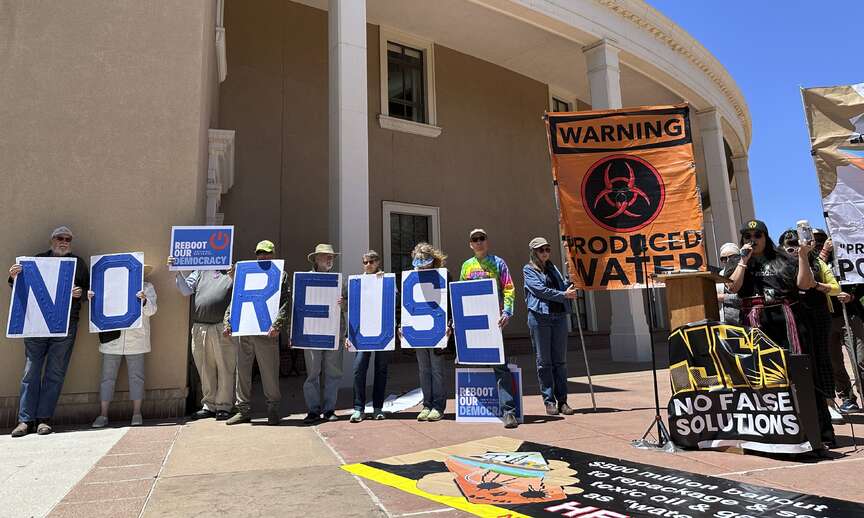 Protesters gather outside the New Mexico Statehouse to denounce a proposed rule for the treatment and recycling of oil-industry fracking water, Monday, May 6, 2024, in Santa Fe, N.M. Environmental officials in the nation’s No. 2 state for petroleum production are taking initial steps toward regulating the treatment and reuse of oil-industry fracking water. New Mexico has been grappling with scarce water supplies, and fossil fuel producers are confronting shrinking opportunities for water disposal. The state’s Water Quality Control Commission opened a weeklong series of hearings on Monday, May 13. (AP Photos/Morgan Lee)
Protesters gather outside the New Mexico Statehouse to denounce a proposed rule for the treatment and recycling of oil-industry fracking water, Monday, May 6, 2024, in Santa Fe, N.M. Environmental officials in the nation’s No. 2 state for petroleum production are taking initial steps toward regulating the treatment and reuse of oil-industry fracking water. New Mexico has been grappling with scarce water supplies, and fossil fuel producers are confronting shrinking opportunities for water disposal. The state’s Water Quality Control Commission opened a weeklong series of hearings on Monday, May 13. (AP Photos/Morgan Lee)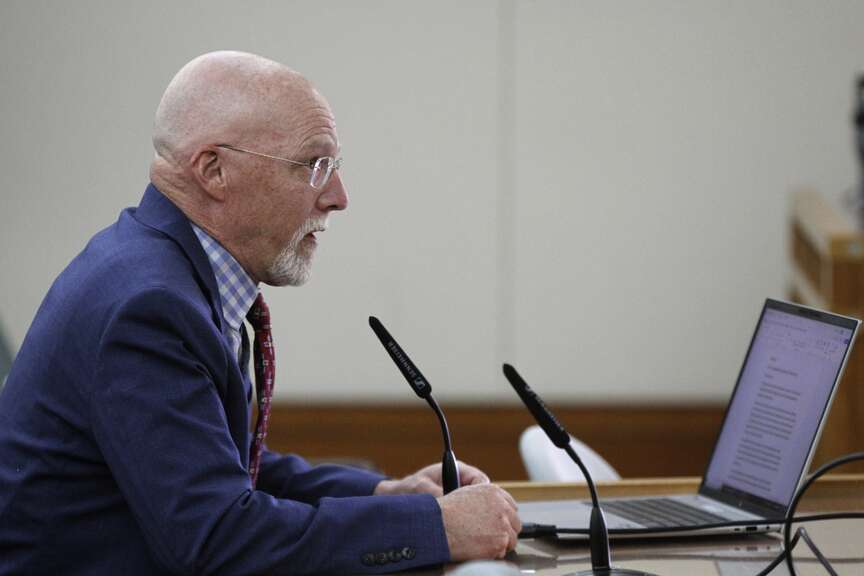 Andrew Knight, an attorney for the New Mexico Environment Department, introduces proposed rules for regulating the treatment and reuse of oil industry fracking water in Santa Fe, N.M., Monday, May 13, 2024. New Mexico has been grappling with scarce water supplies, and fossil fuel producers are confronting shrinking opportunities for water disposal. The state’s Water Quality Control Commission opened a weeklong series of hearings on Monday. (AP Photo/Morgan Lee)
Andrew Knight, an attorney for the New Mexico Environment Department, introduces proposed rules for regulating the treatment and reuse of oil industry fracking water in Santa Fe, N.M., Monday, May 13, 2024. New Mexico has been grappling with scarce water supplies, and fossil fuel producers are confronting shrinking opportunities for water disposal. The state’s Water Quality Control Commission opened a weeklong series of hearings on Monday. (AP Photo/Morgan Lee)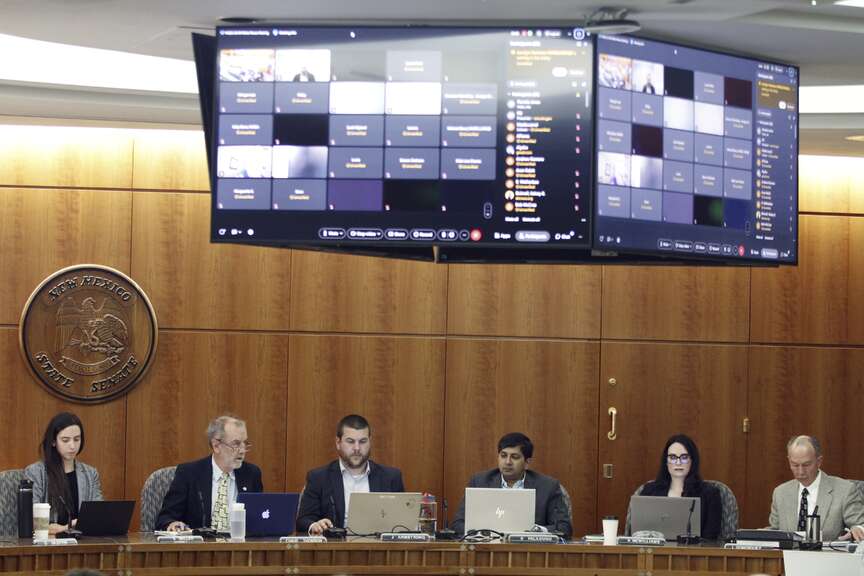 Members of the New Mexico Water Quality Control Commission, including Chairman Bruce Thomson, second from left, gather in Santa Fe, N.M., Monday, May 13, 2024. Environmental officials in the nation’s No. 2 state for petroleum production are taking initial steps toward regulating the treatment and reuse of oil-industry fracking water. New Mexico has been grappling with scarce water supplies, and fossil fuel producers are confronting shrinking opportunities for water disposal. (AP Photo/Morgan Lee)
Members of the New Mexico Water Quality Control Commission, including Chairman Bruce Thomson, second from left, gather in Santa Fe, N.M., Monday, May 13, 2024. Environmental officials in the nation’s No. 2 state for petroleum production are taking initial steps toward regulating the treatment and reuse of oil-industry fracking water. New Mexico has been grappling with scarce water supplies, and fossil fuel producers are confronting shrinking opportunities for water disposal. (AP Photo/Morgan Lee)







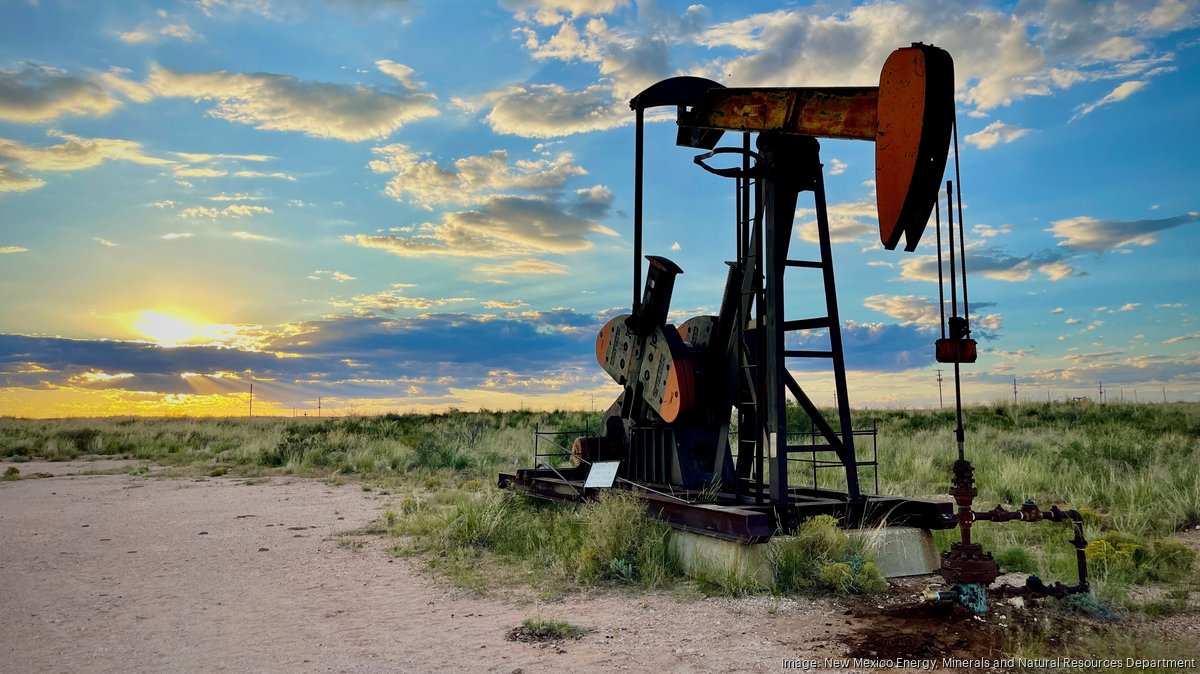





/cdn.vox-cdn.com/uploads/chorus_asset/file/23249791/VRG_ILLO_STK001_carlo_cadenas_cybersecurity_virus.jpg)
